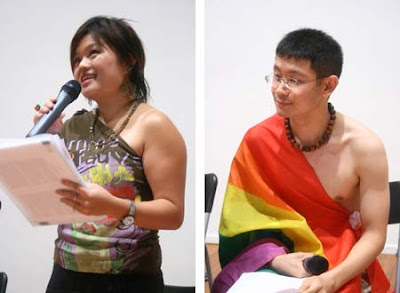
Also consider that Deogratias Niyizonkiza is a personal friend of Kidder's; that Kidder accompanies him on a trip back to the site of his refugee flight in Burundi and Rwanda (yes, this guy escaped the pogroms in his home country only to seek safety in Rwanda, just in time to watch the massacres breaking out all over again). Watches Deo wrestle with his demons, visiting the memorial sites of mass murder obsessively on a quest for catharsis which his own culture forbids - there's a saying in Kirindi that it's better to forget, that it's taboo to speak of the dead and things in the past, which means that healing is next to impossible.
Kidder really has a knack of getting under his subject's skin: having worked on biography I know how difficult it is to milk subjects for details about their lives, but he's mapped Deo's journey quite extensively, from his impoverished childhood in Butanza to his medical school years in Bujumbura to his survival of the genocide, his flight to Rwanda, his return to Bujumbura, his escape under false pretences to New York, where he somehow drew on the kindness of strangers to go from being a Gristedes delivery boy to a Dartmouth medical student, all the while haunted by horrible dreams which he could never tell himself weren't real, because that darkness and that blood, that baby he'd left starving as he crawled across the killing fields, well, they'd happened.
(The New York tale is particularly striking, and not just because I recognise the geography: the sheer effort of a few do-gooders to help him, versus his cultural pride and shame at having to accept charity, to the extent that he'd routinely sabotage their good works - god, how does good even make it in this world when there's so much room for misunderstanding?)
I'm tired and I'm not feeling particularly up for literary dissection, but yeah, this is a good book, just a little exhausting in its dedication to documenting the actual causes for the genocide (the fact that I'm reading Shamini Flint's Inspector Singh Investigates: A Deadly Cambodian Crime Spree, set at the Khmer Rouge war crimes tribunal, really doesn't help my mood. Genocide everywhere.)
But a final point: why the hell doesn't Kidder mention Deo's surname? I mean, he's promoting his Village Health Works clinic out the wazoo, and a little googling makes it clear that this guy exists rather than being a fictional construct. So why keep this detail cloaked? Does it help to fictionalise this man? Does it render him more sensational, more literary?
Wanna sleep.
View Around the World in 80 Books!!! in a larger map
Representative quote:
Deo remembered, from a previous trip, taking a walk here in Bujumbura with his beloved older brother, Antoine, and coming upon a corpse. This was back during the war. The body was laid out on top of a heap of garbage. Deo had yelled at the sight, frightened and appalled. His brother had looked at the corpse and said, "What's strange here?" Then he'd looked at Deo and said, "You've been away too long."
Next book: Paul Rusesabagina's An Ordinary Man, from Rwanda. Yeah, I'm keeping up with the genocide theme, curse your eyes.


